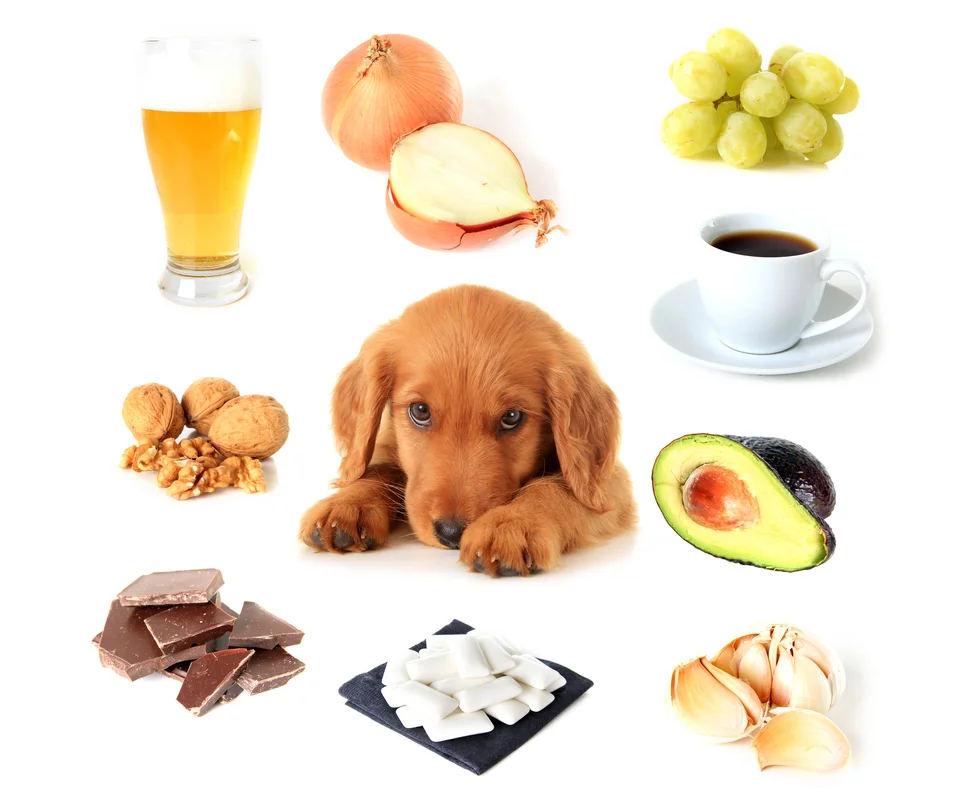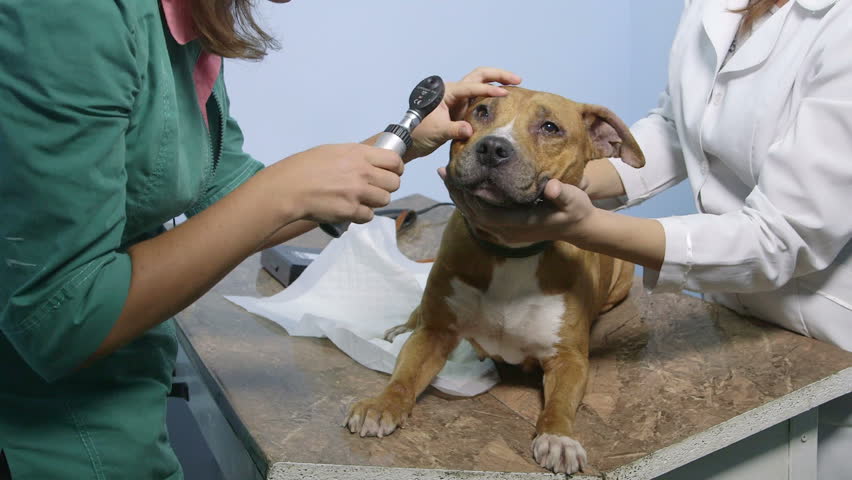Pet Blog > Suspect your dog has been poisoned?
Suspect your dog has been poisoned? Now what?
Pet poisonings are some of the most widespread emergencies that vets see. Your dog is often exposed accidentally to potentially toxic household products as well as medications. However, at times well-intentioned pet owners unknowingly give their dog harmful products or medications.
In most cases, dogs get poisoned just by drinking or eating a toxic substance. The toxic substance can be a small puddle of antifreeze from your vehicle in the driveway or a mushroom that he stumbled upon on a hike. Often, people complain that their dog ate rat poison or their dog licked ant poison. Because of the variety of risks, understanding poison control for dogs is essential. When in doubt, contact the ASPCA Animal Poison Control Center at (888) 426-4435 and your own veterinarian.
Quick link: Emergency Vet Near Me
Unfortunately, it is not as simple as keeping a bottle labeled “poison” that has crossbones and skull on it away from your dog. Your furry companion might look very adorable begging for a bite of the chocolate cake; however, not giving him what he wants can save his life.
This dog poison list has some common dog poisons that you should look out for:
Rat poison
Chocolate
Alcoholic beverages
Acorns and walnuts
Common household drugs such as Advil, NSAID’s, and Acetaminophen
Grapes and raisins
Artificial sweetener Xylitol commonly present in chewing gum
Mushrooms
Plants such as lily, yew trees, or sago palm
Onions and garlic
Bleach
Marijuana or other recreational drugs
Automotive antifreeze
Symptoms of Poisoning in Dogs
The severity of symptoms of dog poisoning depends mainly on the kind of toxin involved and the quantity that entered the dog's body. It is worth mentioning that some poisoning symptoms in dogs will show up right away, whereas others might take a few hours after ingestion before they appear.
In case you know that your dog has ingested something that might potentially be toxic or poisonous, you must not wait until any symptoms appear. Some signs and symptoms of poisoning in dogs are:
Difficulty breathing
Vomiting
Pale gums
Diarrhea
A racing heart rate
Weakness and lethargy
Excessive urination or thirst
Absence or decreased urination
Disorientation
Dull mentation, acting abnormally
Diagnosis of Dog Poisoning
Poisons and toxic substances, such as rat poison and antifreeze, come in several forms. Because of this is why it is usually difficult to provide an exact diagnosis when the substance is unknown. When needed, a blood work-up would be ordered to identify the precise cause of poisoning in your dog.
If you have reason to believe that your dog or pup has ingested rat poison, seek professional help right away. If your dog vomits, bring the sample of his vomit to your vet. More importantly, in case you’ve found the substance that the dog ingested, take it to your veterinarian's office as soon as possible. Having this sample will considerably shorten the time your vet will need to make a diagnosis.
The earlier your veterinarian determines which poison your dog has ingested, the sooner he or she can start treating the dog.
Treatment
Treatment for a poisoned dog is specific for the poison or toxic substance involved and the symptoms. Your vet will carefully assess your canine’s condition before deciding on a particular treatment plan. In most cases, the vet’s priority will be to stabilize your dog before performing any diagnostic tests and procedures. The main goal of treatment is neutralizing the ingested substance to prevent any further absorption into your dog's body, as well as to provide supportive measures to the pet.
Also, when possible, a suitable antidote will be administered based on what your dog ingested. If your dog gobbled up the poison, then the treatment will begin by making him vomit. Based on what your dog ate, your vet will tell you whether to induce vomiting or not. For instance, vets usually prescribe vomiting when your dog swallows a handful of medication, like aspirin or blood pressure pills.
If your furry companion is unable to breathe because of poisoning, an emergency airway will be established as soon as possible to prevent asphyxiation. If your dog's heart has stopped, then cardiopulmonary resuscitation(CPR) or cardiac massage might be required to regain a normal heartbeat. In some cases, your veterinarian may choose gastric lavage. He will pass a tube filled with water into the stomach to flush your dog's system that will wash the substance from the dog’s stomach.
Post Treatment Care
You will have to observe your pet to track its progression. After treatment, your vet will continue to monitor your dog and determine whether his condition is improving or worsening. He will recommend fluid therapy to keep your dog hydrated. You should also take the following steps:
Keep all potentially poisonous and toxic substances, such as flowers, plants, and foods out of the reach of the dog.
Always ensure that your dog’s water supply is clean and fresh.
Store all pesticides, cleaners, and medications in a secured cabinet above the counter.
Never leave chocolate unattended.
Average Cost of Treatment
Depending on the substance ingested and severity of symptoms, there are many treatment options. One of the most common treatment options for poisoning in dogs is inducing vomiting. Other treatment may include medication to reduce pain and symptoms, overnight monitoring, or IV’s for flushing out the toxins in the system. The cost of treatment can vary from $250 to $5,000. Cases involving the ingestion of human health medication average around $1,000 for emergency care.
As a dog owner, you also have to pay the vet exam fee as well, which isn’t usually covered by pet insurance. The cost of modern veterinary care has increased in the country. Unfortunately, in times of emergency, there is little time to act. It is important that you have an emergency fund available for yourself, but have you considered one for your pet? Knowing that eventually an emergency is likely to happen, it is a good idea to have some funds on hand to address these unexpected vet bills. In the event that you cannot readily afford this kind of emergency, consider asking your veterinarian for a payment plan, use a credit card, or even opening a line of credit could be ways to address your immediate needs.
Final Thoughts
If you suspect that your dog has been poisoned, it is better to err on the side of caution. You should contact your vet immediately if you notice signs of poisoning. Many dog owners commit the mistake of waiting too long to seek treatment as they are not sure what has happened.
While your dog may seem he is okay, keep in mind that poisonings can get extremely serious, very soon. And by the time you finally realize your pup needs help, it may be too late. So, don’t take any chances.
Check out the other “Dog Blog” articles
Return to the Pet Blog



